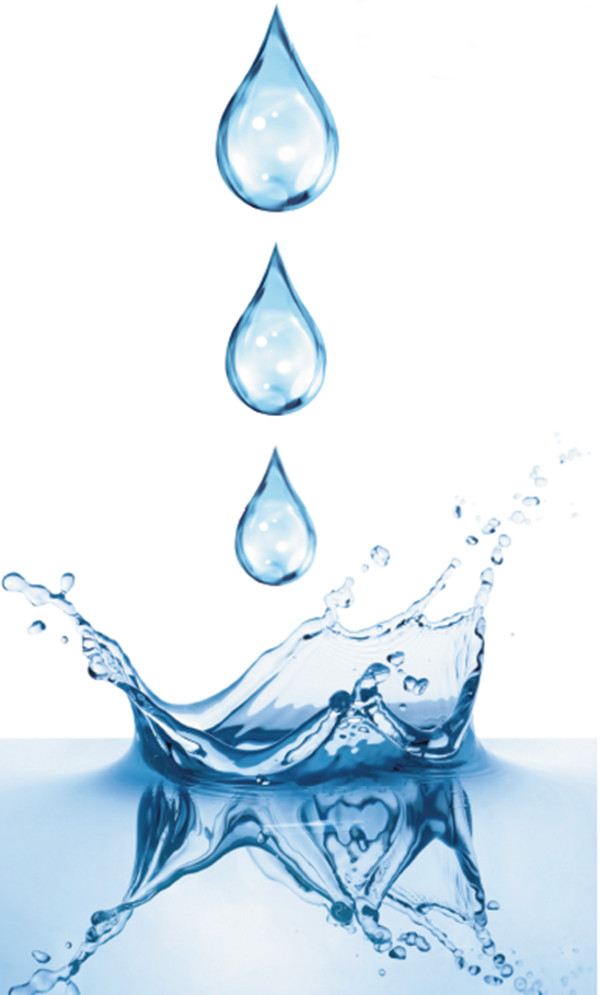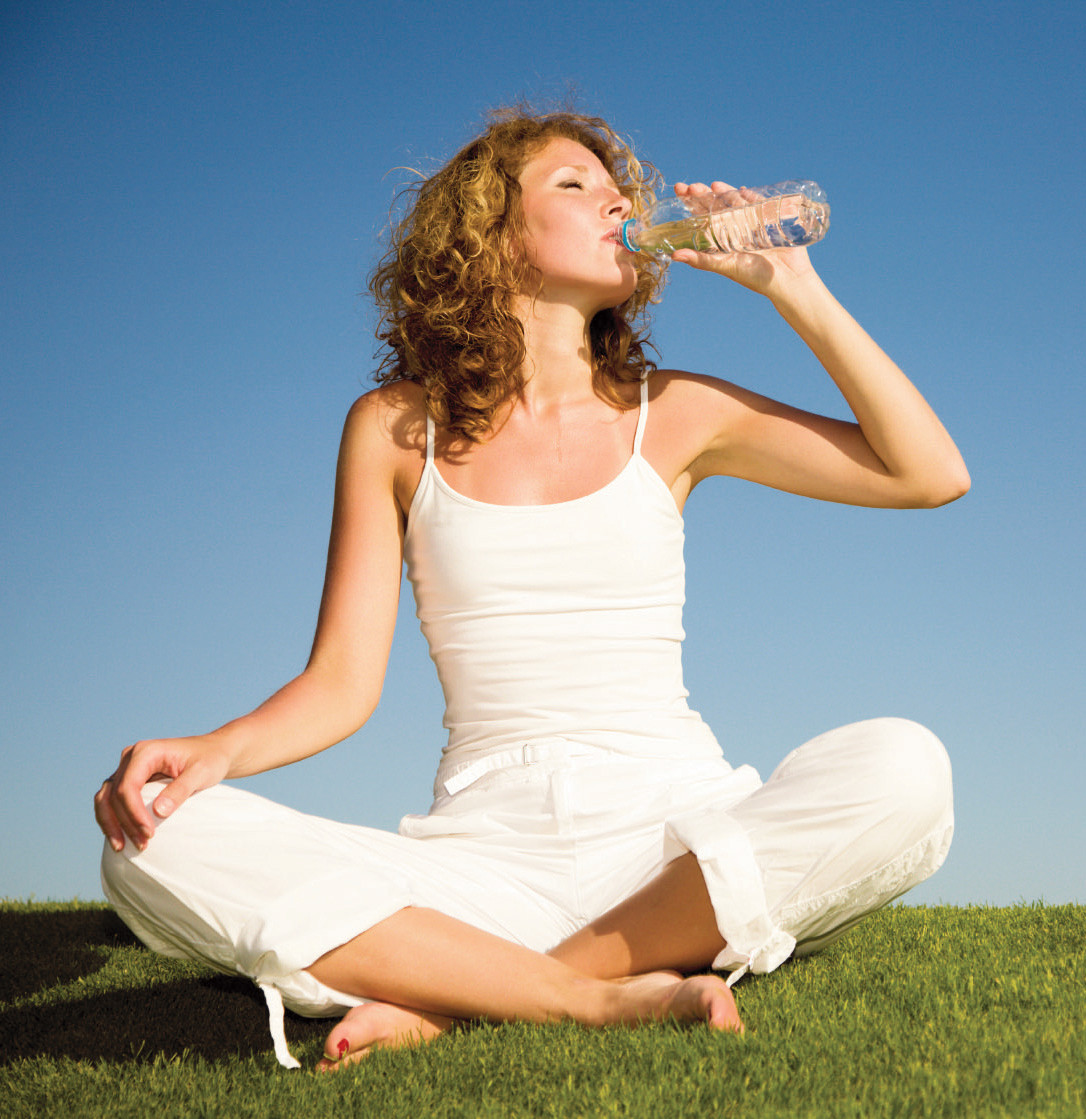Healthy hydration
In Population Health
Follow this topic
Bookmark
Record learning outcomes
The human body is two-thirds water and it’s essential to keep it well hydrated for it to function effectively. Here is a look at how hydration affects our health and how you can encourage customers to drink more

You might think that dehydration is something that can only happen in hot weather or during a fever or illness, but in fact, 30 per cent of people who are admitted to hospital in the UK are dehydrated and correct hydration could lead to NHS savings of £0.95 billion, according to the National Association of Care Catering (NACC).
The human body is almost two-thirds water, with the muscles and brain made up of around 75 per cent water and the blood and kidneys 81 per cent, according to the European Hydration Institute. Most of the water in our bodies is found in our cells. The body needs water to survive and function properly. While we can live for several weeks without food, we can only last a few days without water. What are the signs of dehydration?
Thirst is the most noticeable sign of dehydration, but there are other less obvious signs. “A person might feel tired, get headaches and find it hard to concentrate,†says nutritionist Sarah Coe at the British Nutrition Foundation. “When we feel thirsty, we’ve typically lost one to two per cent of our body mass as water, so we may already be mildly dehydrated.â€
Other signs that a person is dehydrated include:
- Dark coloured urine
- Constipation
- Confusion and irritability
- Dry mouth
- Tiredness
- Dizziness
- Increased urine infections
- Kidney stones.
Studies have shown that dehydration affects concentration levels and also mood. A report published in Nutrients (2011) and another in the Journal of Nutrition (2012) found links between dehydration and poor concentration, mood swings and fatigue. The loss of even one to two per cent of body weight fluid (500ml-2l) can make us feel less alert.
People who regularly don’t drink enough fluid may also be more prone to urinary tract infections (UTIs). Customers who are more prone to UTIs may be worried about drinking too much, but in fact evidence shows that restricting fluid intake does not reduce urinary incontinence frequency or severity, says the NACC.
Â
Top tips to increase fluid intake
Pass on these expert tips to help customers stay hydrated and healthy:
- Drinks should be included with each meal to make drinking part of the daily routine
- Keeping a bottle of water to hand at all times may help customers remember to drink more
- Regular breaks at work are an ideal opportunity to have a chat at the water cooler, or over a cup of tea
- A mobile phone app can be used to record the amount a person is drinking
- Customers could try setting an alarm on their phone to remind them to drink regularly.
Â
 What causes dehydration?
Dehydration can affect anyone, and it’s not always as simple as not drinking enough. “Our sense of thirst weakens as we age, so older adults may not be able to tell when they are thirsty and need to increase fluid intake. Ageing also causes kidney function to decrease, so as the kidneys are less able to concentrate urine, older adults can lose more water this way,†says Sarah.
At the British Dietetic Association, spokesperson Andrew Wilson agrees: “Older people have a fading sense of thirst or memory problems and therefore forget to drink. They may drink less due to fear of incontinence, or other medical conditions like poorly controlled diabetes or swallowing difficulties may increase the risk of dehydration.â€
Dehydration is often caused by illness, especially diarrhoea and vomiting. Excessive sweating, either because of a fever, exercising or manual work in hot weather all cause dehydration. Alcohol is a diuretic and can also cause dehydration – the typical headache associated with a hangover is caused by dehydration.
People who have diabetes are at higher risk of dehydration due to high levels of glucose in the bloodstream. The kidneys try to get rid of the glucose by creating more urine, so the body becomes dehydrated from passing urine more frequently. Studies have found that care home residents are at increased risk of dehydration too.
A report published in the Journal of the Royal Society of Medicine found that patients admitted to hospital from care homes had a 10-fold higher prevalence of dehydration than those admitted from their own homes. Figures presented at a Royal Society of Medicine conference in 2014 showed that people with dementia were six times more likely to be dehydrated.
“People with dementia may forget to eat and drink, have a reduced sense of thirst or appetite, get distracted more easily or have problems holding cups. They may need more support with eating and drinking,†adds Andrew. What’s more, at the National Association of Care Catering, organisers of Nutrition and Hydration Week (which took place in March this year), say that people with dementia may not recognise thirst or remember if they have drunk enough.
What are the benefits of hydration?
The European Hydration Institute outlines the following health benefits of keeping well hydrated:
- The brain remains more alert and functions better
- The body’s cells function better. Hydration is important for transporting vitamins, minerals and other important nutrients and oxygen to our cells. The cells then produce energy for the body to function
- Improved digestion of food and absorption of nutrients from the digestive tract
- Healthy heart function – correct regulation of water balance is essential to keep blood pressure within a healthy range
- Healthy kidney function – adequate fluid intake helps kidneys remove waste products via urine
- Helps to cushion joints and keep muscles working well
- Keeps skin hydrated and healthy
- Body water has an important role as a thermo-regulator, preventing the body from over-heating.
How much fluid is enough?
The amount of fluid each person needs will vary and depends on body weight, age, how much physical activity the person does as well as the climate. European recommendations suggest 1.6 litres a day for women (about eight x 200ml glasses) and two litres a day for men (10 x 200ml glasses). This is in addition to the water obtained from food.
Children need around six to eight glasses per day and younger children need smaller drinks (120-150ml each). “Water is a great choice for keeping hydrated as it doesn’t contain calories. However, we can get water from all the drinks we consume except stronger alcoholic drinks,†explains Sarah. In moderation, caffeinated drinks such as coffee and cola won’t cause dehydration.
“As well as drinks, food can contribute around 20 per cent of our total water intake. Some foods, such as fruit and vegetables, have a high water content of up to 80 per cent. Meals like soups and stews are also a good source of fluid,†adds Sarah.
Can you drink too much water?
“It is possible to drink too much, and in rare cases this can be dangerous as it causes low levels of sodium in the blood. This can cause a number of symptoms, including swelling of the brain, confusion, vomiting and seizures, and could eventually lead to coma,†says Sarah. “If a person is passing urine frequently and their urine is very pale, they may be drinking more than they need.â€
Â
Treating dehydration
Babies
Refer to the pharmacist immediately
Children
If dehydrated, children should not be given plain water as this can dilute already low levels of minerals in the body and worsen the problem. A rehydration solution or diluted juice should be given instead.
Adults
An over-the-counter rehydration solution will quickly re-establish the correct balance of body fluids.
NB: If severe dehydration is suspected in children or adults, refer to the pharmacist. Hospital admission for rehydration with a saline drip may be required.
When we feel thirsty, we’ve typically lost one to two per cent of our body mass as water

